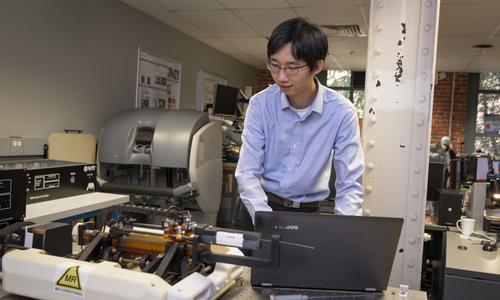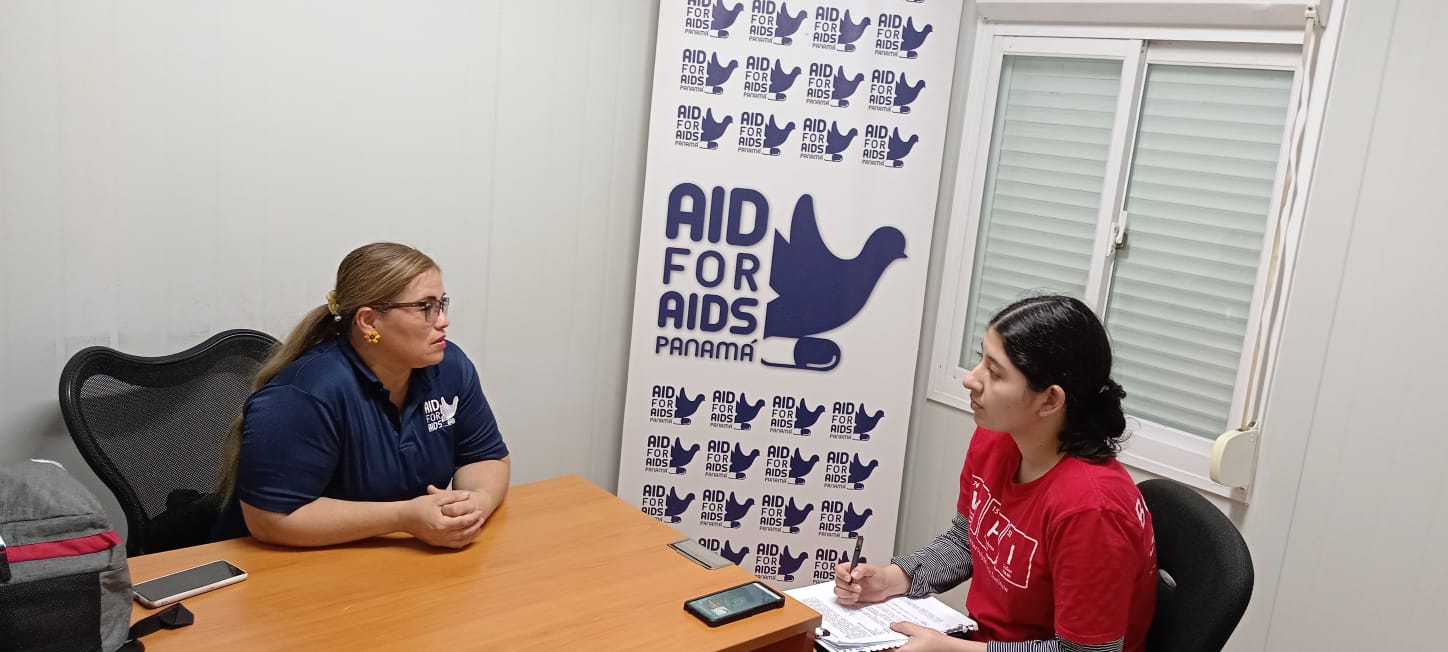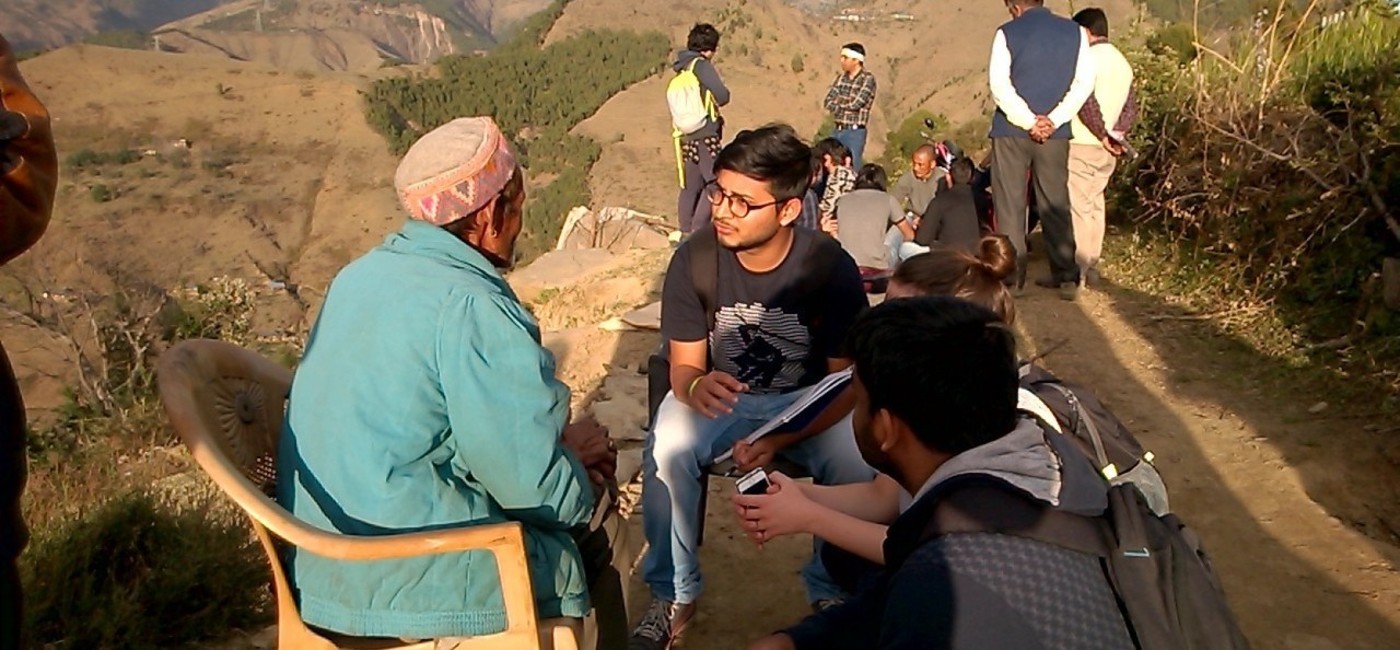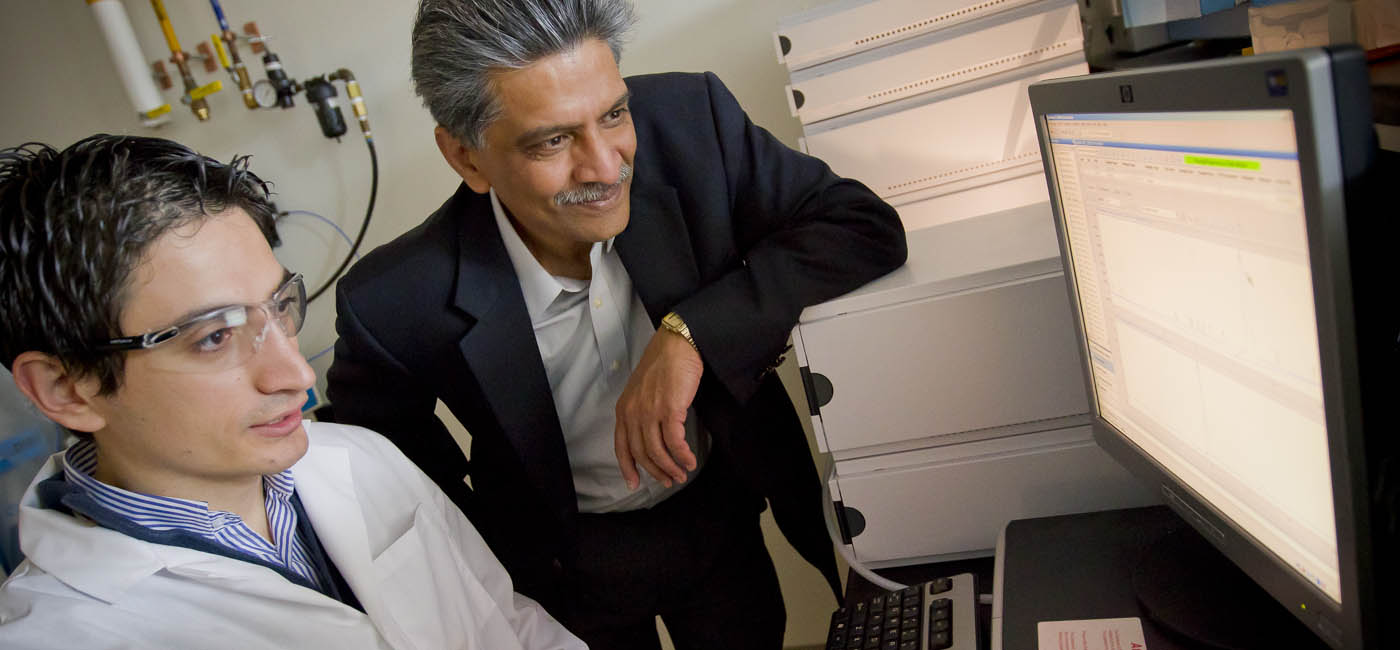Prepare to Be a STEM-Focused Global Health Leader
From biomedical devices to mobile health apps to telemedicine, technology is reshaping every aspect of global health. At WPI, we approach everything—including our global health program—with a STEM focus, making it the ideal place to study. As an institution that believes in turning knowledge into action, our program also provides opportunities to further health equity and social justice.
And with 50+ project centers around the world, you can have a global health education that’s truly global. Collaborate with diverse peers, learn from world-class faculty, and customize your degree to fit your passions as you prepare to address the urgent challenges in today’s global health landscape.
New! This program is now eligible for WPI’s BS/MS program allowing you to maximize your educational investment.
Program Highlights
Leverage the latest technology—including AI-assisted medical treatments, cloud computing, data analytics, and
mobile health apps to more effectively address global health challenges.
Build knowledge and skills across disciplines, ranging from AI and data science to social and natural science to
engineering solutions—and support global health in the ways you’re most passionate about.
Travel to conduct field research at one of WPI’s Global Project Centers where you can build cross-cultural literacy
and complete your practicum as far away as South Africa, Armenia, Ghana, or Puerto Rico (and as close as the
Northeastern U.S.). Also, have the opportunity to work with some of the nation’s most impactful agencies and
foundations in the world.
Develop fundamental knowledge of global health methodologies, global policy studies, and mixed-method
social science approaches.
The MS in Global Health program is offered on campus only. This is a program offered in collaboration with The Global School.
Career Outcomes
$105K to $181K
Median salary range in the global health field
(Glassdoor, 2023)
29%
Increase in demand for healthcare workers
over the next 10 years
(Deloitte)
27.8%
Job growth for medical and health services managers through 2032
(Lightcast, 2023)
10.4%
Job growth for bioengineers and biomedical engineers through 2032
(Lightcast, 2023)

AI at WPI: New Applications for Global Health
Artificial intelligence (AI) is applied across disciplines at WPI, and it’s increasingly relevant to many health fields. In WPI’s MS in Global Health, you’ll learn about the global health applications of breakthrough technologies being enabled by the rapid development of AI, including AI-assisted surgical treatments. In our Mobile Applications for Global Health concentration, you also have the option to take courses that include “Artificial Intelligence” (CS534) and “Artificial Intelligence in Design” (CS540). And because we are committed to AI for all, you can work with the technology at a range of skill levels.
Curriculum for Master of Science in Global Health
Through WPI’s MS in Global Health, you’ll gain interdisciplinary expertise in the specific areas global health management and practice increasingly rely on, including biology and biotechnology, biomedical engineering, data analytics, computation, mobile data, and AI. Learn more about why WPI launched the program.
With four possible concentrations, the Master of Science in Global Health has a common core curriculum integrating fundamental concepts that all global health professionals need to master, regardless of specialty.
Core requirements for all concentrations (12 credits)
- IGS502 Perspectives on Global Health (3 credits)
- DEV540 Research Design Methods for Development (3 credits)
- IGS555 Collaboration for a Better World Seminar Series (0 credits)
- IGS595 Graduate Qualifying Project (6 credits)
Total credits required: 30
- In addition to the core curriculum, each concentration requires 9 core credits from concentration-specific courses, plus 9 elective credits.
- Any core course not chosen can serve as an elective.
Graduate Qualifying Project (GQP)
- Your GQP will be related to your concentration and completed as a practicum at a health-related organization or company, either in the US or at one of WPI’s Global Project Centers and university research partner sites around the world.
- You will build awareness of cultural values and practices and learn how to apply them to the design and implementation of health policies or programs in diverse, cross-cultural contexts.
- You will have hands-on practice in professional communication and ethical conduct.
- You will gain awareness of diversity, equity, and inclusion issues in global health management, policy, and data analytics.
A World of Career Options
Prepare for career opportunities in a variety of domains, including healthcare, federal and state offices, non-profit and private foundations, research and development, and technology.
- Global Health Research Scientist
- Global Health Practitioner
- Biostatistician
- Epidemiologist
- Evaluation and Monitoring Consultant
- Global Project Manager
- Global Health Educator
- Health Data Scientist
Make Our Degree Yours: Choose from 4 Concentrations
Global Health Management and Assessment
Are you interested in business development or large-scale program assessment? This MS in Global Health concentration is for students who want to deepen their understanding of the operational and managerial challenges specific to global healthcare systems.
Concentration objectives:
- Understand key challenges in global health that require better management and assessment of complex systems.
- Apply the basic principles and tools of management across diverse cultural domains.
- Develop a team-oriented approach to managing large projects, whether in a nonprofit, government, or industry setting in urban or rural environments.
- Gain skills in managing complexity, risk, and dynamic systems in relation to global health.
- Be able to manage people and programs in teams as well as through cooperative agreements.
Choose 3 core courses for this concentration (9 credits):
-
MIS576 Program Management (3 credits)
-
SD553 Model Analysis and Evaluation Techniques (3 credits)
-
SD562 Project Dynamics (3 credits)
-
SD550 System Dynamics Foundation: Managing Complexity (3 credits)
-
BUS500 Business Law, Ethics, and Social Responsibility
Choose 3 elective courses for this concentration (9 credits):
-
BUS500 Business Law, Ethics, and Social Responsibility
-
IGS510 Human Dimensions of Global Environmental Change
-
MIS573 System Design and Development
-
MIS584 Business Intelligence
-
OBC505 Teaming and Organizing for Innovation
-
OIE549 Sustainable Supply Chain and Operations Management
-
OIE501 Operations Management
-
OIE542 Operations Risk
-
OIE558 Designing and Managing Lean Six Sigma Processes
-
SS510 Principles of Epidemiology
Analytics and Modeling in Global Health
Are you interested in learning how data analytics and quantitative models can be applied to solve global health challenges? This MS in Global Health concentration provides an introduction to data and model analysis (including data mining, data science, and applied statistics), along with courses in biology and epidemiology.
Concentration objectives:
- Understand key challenges in global health that would benefit from data analytics, modeling, and other new techniques in machine learning and AI.
- Interpret results of data analysis for health research, policy, or practice.
- Understand key global health policies surrounding data privacy, transferability, and accessibility.
- Analyze quantitative and qualitative data using biostatistics and computational methods and tools, as appropriate.
- Identify the quantitative and qualitative data collection methods appropriate for a given global health context.
Choose 3 core courses for this concentration (9 credits):
- DS517 Mathematical Fundamentals for Data Science
- SD553 Modeling Analytics and Evaluation Techniques
- DS501 Introduction to Data Science
- SS510 Principles of Epidemiology
- IGS505 Qualitative Methods for Community Engaged Research
Choose 3 elective courses for this concentration (9 credits):
- MA511 Applied Statistics for Engineers and Scientists
- SD550 System Dynamics Foundation: Managing Complexity
- CS5007 Introduction to Programing Concepts.
- CS582 or BCB502 or CS573 Data Visualization
- CS542 Database Management
- IGS510 Human Dimensions of Global Environmental Change
- MIS573 System Design and Development
- ETR500 Entrepreneurship and Innovation
- SD500 Introduction to System Dynamic
- BCB501 Bioinformatics
- BCB504 Statistical Methods in Genetics and Bioinformatics
- DS595 Machine Learning for Engineering and Science Applications
- SD553 Model Analyses and Evaluation
- BUS500 Business Law, Ethics, and Social Responsibility
- MA547 Design and Analysis of Observational and Sampling Studies
- MA542 Regression Analysis
- MA559 Time Series Analysis
Mobile Applications for Global Health
Do you have a background in computing, gaming, design, or AI in Design? Exciting frontiers in applications for global health are open to you. This MS in Global Health concentration builds primarily on programs in computer science and interactive media and game design. It includes courses like Ubiquitous Computing, Human-Computer Interaction, Interactive Design, and Serious and Applied Games.
Concentration objectives:
- Understand key challenges in global health that would benefit from mobile applications and from innovative approaches to interactive and serious gaming.
- Identify the human factors involved in the process of software app design.
- Create solutions based on an iterative process that incorporates human factors and user-centered design related to specific global environments.
- Develop safe and effective mobile apps for use in global health care delivery and disease prevention.
- Be able to develop and deliver global healthcare apps and games that are effectively tailored to the end-user’s environment.
Choose 3 core courses for this concentration (9 credits):
- CS5007 Introduction to Applications of Computer Science
- IMGD5300 Design Interactive Experience
- CS 528 Mobile and Ubiquitous Computing
- CS546 Human-Computer Interaction
- CS582 or BCB502 or CS573 Data Visualization
- IMGD5500 Serious and Applied Games
Choose 3 elective courses for this concentration (9 credits):
- BCB581 Bioinformatics
- CS582 or BCB502 or CS573 Data Visualization
- IMGD5010 IMGD Fundamentals
- IMGD5100 Tangible and Embodied Interaction
- CS540 Artificial Intelligence in Design
- CS534 Artificial Intelligence
- CS542 Database Management
- CS5003 Foundations of Computer Science
- MIS502 or MIS587 Business Applications for Machine Learning
- OBC505 Teaming and Organizing for Innovation
- ETR500 Entrepreneurship and Innovation
- BUS500 Business Law, Ethics, and Social Responsibility
Engineering Solutions for Global Health
Do you want to elevate your engineering or technical degree with a deeper understanding of how diverse global settings affect engineering solutions? This MS in Global Health concentration focuses on biomedical device design and regulation, incorporating aspects of physical, chemical, and environmental engineering that are relevant to human health.
Concentration objectives:
- Understand key challenges in global health that require better engineering solutions.
- Develop tools for healthcare and medical device integration in diverse settings and global contexts.
- Develop new devices and equipment for improving healthcare in remote or developing regions of the world.
- Develop skills, knowledge, and mindset necessary to collaborate with community partners in addressing engineering solutions for global health challenges.
- Understand the interaction of technology, society, and environment in the innovation process.
Choose 3 core courses for this concentration (9 credits):
- BME531 Medical Device Design
- BME532 Medical Device Regulation
- ETR500 Entrepreneurship & Innovation
- BME592 Healthcare Systems and Clinical Practice (1 credit)
- BME533 Medical Device Innovation and Development (1 credit)
- DEV530 Ethics and Social Justice in Development
Choose 3 elective courses for this concentration (9 credits):
- BME532 Biomedical Instrumentation
- CE560 Advanced Water Treatment
- CE561Advanced Principles of Wastewater Treatment
- CE563 Industrial Waste Treatment
- CE590 Environmental Health and Engineering
- CE572 Physical and Chemical Treatment Process
- BME560 Physiology for Engineers
- IGS510 Human Dimensions of Global Environmental Change
- MIS576 Program Management
- OIE505 Teaming and Organizing for Innovation
- BME520 Biomechanics
- ETR593 Technology Commercialization
- SS510 Principles of Epidemiology
- BUS500 Business Law, Ethics, and Social Responsibility
Important Dates
Next Start: January 15, 2025
Application Deadline: Apply anytime!
Similar Majors
Meet Our World-Class Faculty



Have questions?
WPI's dedicated graduate student support team can help.
Graduate Studies Series
Team members from Graduate & Professional Studies host quick and convenient webinars designed to highlight popular topics when starting grad school. Take a deep dive into specific areas of interest such as how to secure funding, how to ace your application, an overview of student services, and more!
Q&A with Professor Karen Oates

The professor of biology and biotechnology answers questions about the Master of Science in Global Health
Take the First Step Today
Ready to be a global health leader at the intersection of science, technology, and society?
Refer a Friend
Do you have a friend, colleague, or family member who might be interested in a WPI graduate program? Click below to tell them about our programs.



